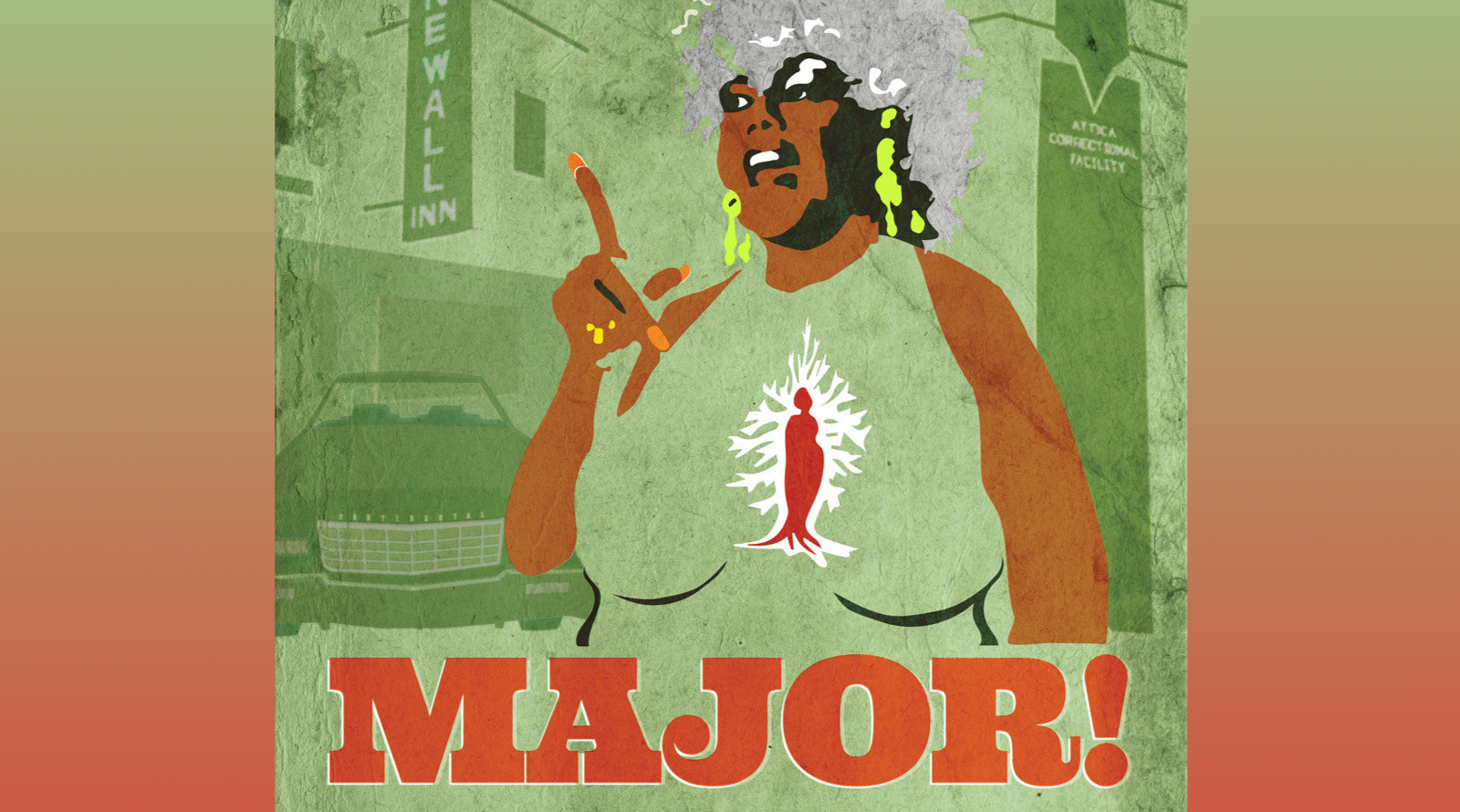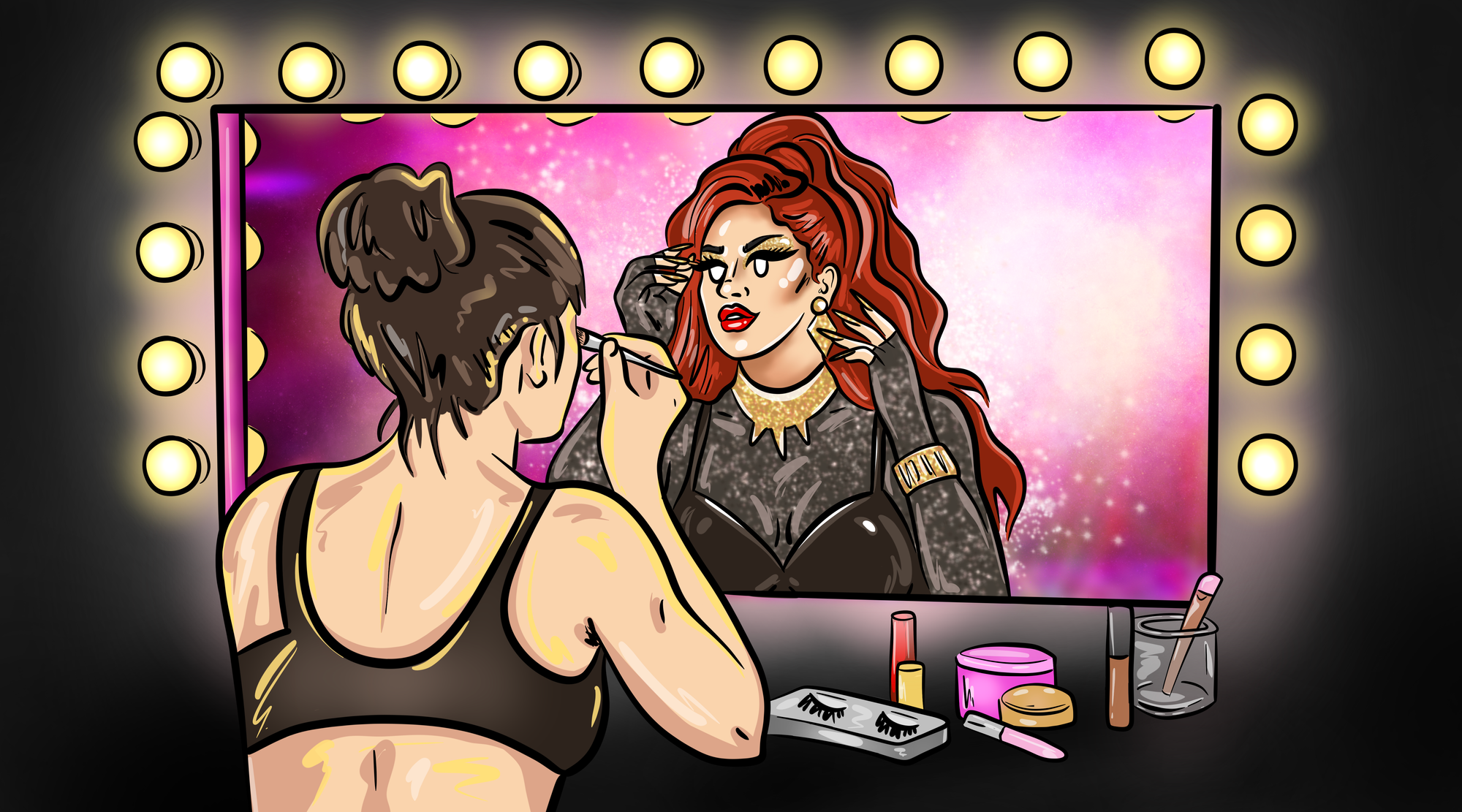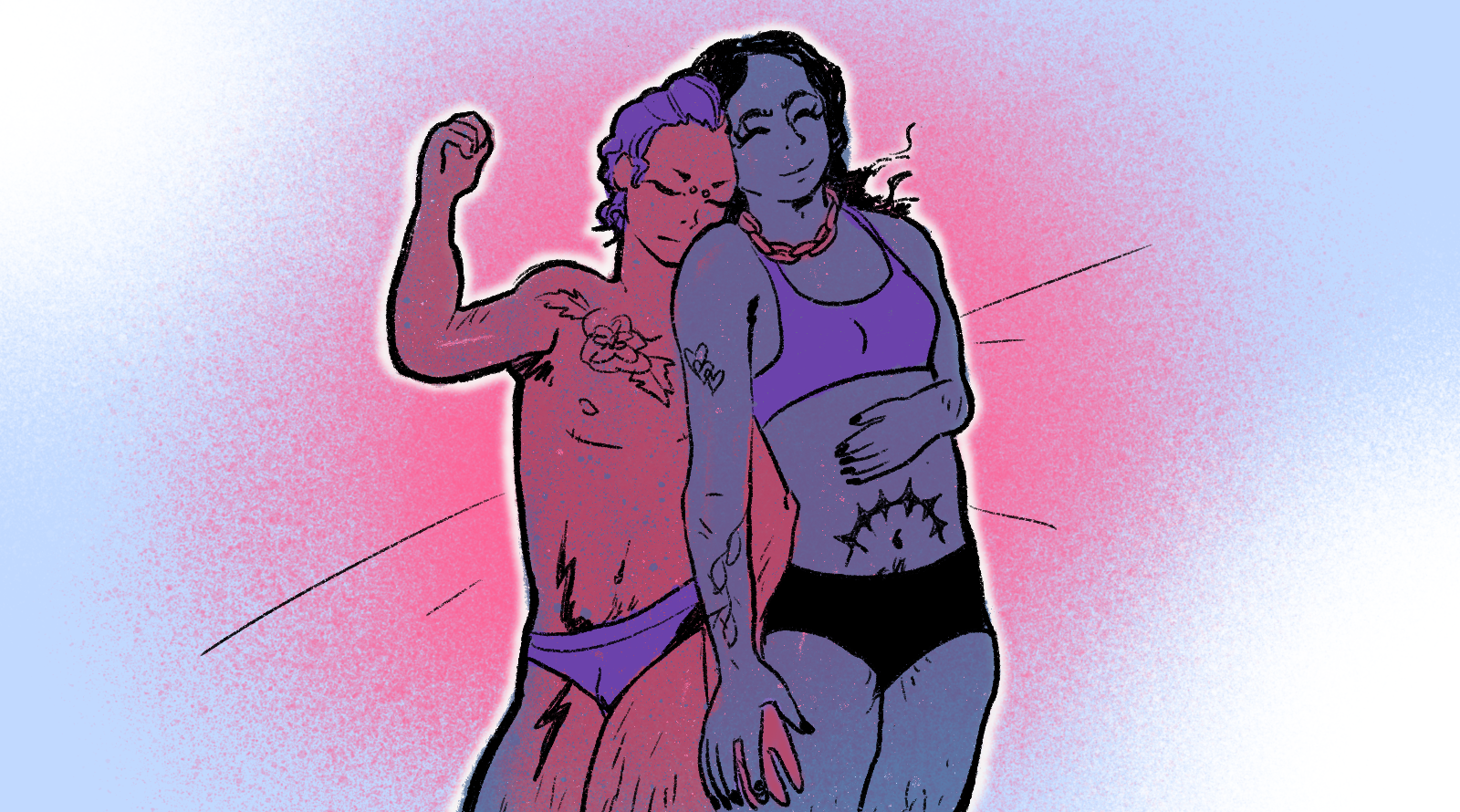Editors Note: racism, transmisogyny, drug use.
Miss Major Griffin-Gracy is everything you dream of in a fairy godmother: fabulous. Speaks truth to power. A sex worker. One of the few known living survivors of the anti-police Stonewall Inn riots (in fact, she says the only reason she was down by Stonewall that night was because she had a client in the neighbourhood). Actively trying to get vanity plates for her car that read “TRNSGDR.” Allegedly has a doormat reading “Home, where the ho and me come together.” A dedicated activist who refuses to be tokenized, by anyone—be they corporate entities waving a check for a speaking engagement which would go against Major’s strong principles, commercial Pride parades seeking to put her on a float as their token Black trans representative, government officials pussyfooting around the everyday issues of survival facing trans women, or even other activists. She’s survived the Klu Klux Klan burning a cross on her lawn in California, countless instances of police brutality, imprisonment, solitary confinement, and psychiatric institutionalization. She’s shone through parenthood, performance, leadership, activism, and speaking truth to motherfucking power. She is Miss Major Griffin-Gracy.
You may have heard of Miss Major through the 2015 documentary about her life and work entitled MAJOR! I watched MAJOR! in 2021, and the film is well worth the purchase for watching at home or hosting a community screening; I believe that the proceeds go towards Miss Major’s care. Or, you may have read the 2023 book Miss Major Speaks of Miss Major’s wisdom on life, sex work, activism, and trans self-determination compiled by Toshio Meronek (again, I highly recommend it). I first heard of the work of Miss Major in what I believe was 2019 through an astrologer I followed at the time; Miss Major had a stroke, and her crowdfunding campaign for medical treatment was circulating through leftist circles. According
to her book, Social Security refused to cover her medical bills partially because of the time Miss Major spent in prison, as well as the time she was forced to spend against her will in psychiatric hospitals for being transgender. After decades of mostly informal labor, a result of discrimination against trans folks in formal employment, Miss Major found out she was only going to receive the pittance of $175 USD per month for the rest of her life to care for her in her elderly years. When I saw the black-and-white photo of this laughing, smiling, black woman driving a van (the first mobile clean needle exchange in San Francisco, California) with long acrylic talons in the fundraiser announcement, I was hit with the force of Miss Major’s spirit through the photograph.
I won’t attempt to recount the fullness of Miss Major’s life or her legacy: Toshio Meronek has done a wonderful job of that in Miss Major Speaks, as well as through their article on Miss Major for Mother’s Day in 2023. Or, you could read this profile on her in The Guardian from 2023. But Miss Major should be recognized in the sex worker community as a real-life sex worker-superhero. Here’s an example of why: mentoring from elder sex workers helped Major develop a system of community survivance among her fellow street-based sex workers in New York circa the 1970s. She convinced her coworkers on the Avenues to start writing down the license plates of cars everyone got into and to get descriptions of the Johns. Eventually they developed a formal system in which each night a designated lookout was employed and the fellow workers would give the lookout a percentage of their earned income for their labor. This is a genius move of simple solidarity and community organizing that can be lifesaving for street-based sex workers, especially for Black trans workers whom the police are uninclined to look for in the event of disappearance.
One of the things I appreciate about Miss Major is that she manages to say, without any sugarcoating or pretensions towards respectability, clear and powerful truths about sociopolitical factors affecting sex workers that some of us—myself included—often struggle to put into academic or civilian-friendly terms. For example, one of my favorite quotes of hers in Miss Major Speaks is: “When I was sucking dick on Seventh Avenue, I wasn’t thinking about the next day. And sex work was a job. One that I happened to like, but nevertheless. In the sixties they used to say it was a time of ‘free love.’ Me and the rest of the gurls down on the Avenues were just like, ‘Oh god, what are the hookers gonna do?’” She also refuses to let people stigmatize drug and alcohol use among street-based sex workers, citing the facts of work: “Just think about it for half a second: If you had to survive off the streets every day to pay rent and get a cup of wor wonton soup in the dead of winter when it’s zero degrees out in New York City, yeah, you're going to drink. You might even need drugs because you’ve got to stay up to turn tricks and make a little money so you can make it through to the next day. Then you’ve got to go out and do it again. That doesn’t make you this junkie who doesn’t deserve a voice in this movement, because society deems us unworthy of respect.”
As a Black queer person, Miss Major’s candid refusal to allow wealthy white gays and lesbians to whitewash the gay rights movement speaks to me greatly. She takes no prisoners when it comes to putting transphobia in the TLGB (her reformation of the LGBT acronym, which puts trans people first) community on blast and being critical of nouveau-faux activist posturing and the identity politics of allyship. Quotes of hers on this topic that I stand on: “Cops come, and the white people disappear into the night, and suddenly you're alone and the only one in cuffs on the ground”, “So when people talk about this Trans Day of Visibility someone started a few years back—what?? Whatever image they have in their head or however many surgeries they’ve had, for a lot of the gurls it’s just a fact that on a dark night, a cisgender person could clock them from a mile away. It’s our allies that need to be more visible”, and “A lot of people are doing activism verbally, or making a tweet, then calling it a day. They’re not doing the job. Go outside. Get wet.” Miss Major even inspired two anonymous activists to repaint the white, cisgender statues New York erected to commemorate the Stonewall Riot as Black and Latina transgender women.
I whoreheartedly agree with Toshio Meronek’s assertion that Miss Major models, “joyful resistance,” in a way I can only hope to aspire to. One of Miss Major’s repeated lines in Miss Major Speaks is, “It’s got to be all of us, or none of us”, a concept of total liberation she learned while being mentored by a Black Panther and survivor of the Attica Prison Rebellion in the 1970’s while incarcerated. It was such a joy to read that legacy Black activists like Big Black and Angela Davis have been part of Miss Major’s activist community; it is proof that the mainstream Black Civil Rights movement has no business being continually co-opted by middle-class, Christian, conservative politics of respectability that exclude gay and trans folks. Miss Major refuses to leave anybody behind; during the HIV/AIDS crisis, she mobilized sex workers to be hired as caregivers to gay men suffering from the virus when the men’s own families wouldn’t come near them. Major created these “Angels of Care,” to provide support to other members of the queer community and paid work opportunities for sex workers outside of the sex work industry, which was losing clients because of fear around the virus.
Another thing I love about Miss Major is her firm grasp of the importance of internationalist activism; along with Pan-Africanism, this is something I feel that has gotten lost in the contemporary African-American Civil Rights movement, largely in part due to its absorption of 1980s dogma around American exceptionalism and isolationism. However, in the 1970s, this focus was a key point in movements like the Black Panther Party, and Miss Major takes care to mention the intersectionality of oppression faced by Indigenous folks, Latin American migrants, and Palestinian trans people in her book as connected with that of her “gurls” in the United States of America. Indeed, she has a talent for decentering herself: she renamed the retreat center she created for trans folks from House of GG (the two Gs standing for Griffin-Gracy) to TILIFI (Tell It Like It Fuckin’ Is). Even though she has been through enough to fill a whole book, she made sure to uplift the names of Jennifer Laude and Gwen Arajuo—two trans women who were murdered, one in the Phillippines and one in California; I had never heard of these stories before, and I was glad to be educated on the lives and unjust murders of these women by cis men. She has also taken great care in her life to address the abuses of the prison system, and highlight the ways in which Black trans women especially suffer unjustly from multiple marginalization within prisons, as well as addressing the common practice of placing trans women in solitary confinement.
Sadly, on January 9th, 2025, her Twitter account announced that Miss Major had fallen ill and was hospitalized; she will now need a full-time nurse to assist her. She has worked to aid the lives of the oppressed for most of her life—certainly she deserves care and rest in her elder years. I hope that she lives in health and peace for many years to come! To help Miss Major, you can donate to her new recovery fund using the images in the graphic below. Long live Major!
Bio: empress mirage, also known online at thepasteldomina, is a writer of smut and cultural commentary. she is a former fssw, bondage model, and stripper; she now creates online content as a findomme and living goddess. her bylines appear in the tryst.link blog, petitmort magazine, and the scarlett letters pride zine. find her on x: https://x.com/pasteldomina and all her links: https://direct.me/thepasteldomina

Are you a sex worker with a story, opinion, news, or tips to share? We'd love to hear from you!
We started the tryst.link sex worker blog to help amplify those who aren't handed the mic and bring attention to the issues ya'll care about the most. Got a tale to tell? 👇☂️✨





